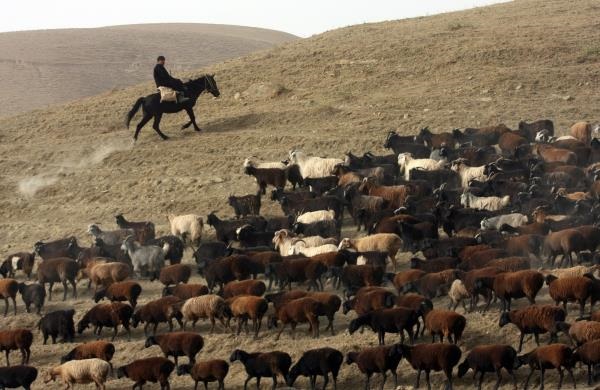
28 April 2016, Rome - A devastating livestock disease is continuing to extend its global reach and is now present in 76 countries.
Georgia recently reported its first-ever case of Peste des Petits Ruminants (PPR), a viral disease which is capable of severely impacting goat and sheep populations, while a new outbreak has occurred in the Maldives, showing that even island states are vulnerable to the plague.
The outbreak in Georgia, near the borders with Armenia and Azerbaijan marked new territory for the disease, which is particularly lethal upon contact with unprotected animals.
Experts from the Food and Agriculture Organization (FAO) and the World Organisation for Animal Health (OIE) recommended control measures including vaccination of 800,000 sheep and goats. Quarantine zones have been created and surveillance of animals in adjacent regions intensified.
The outbreaks — coming on the heels of similar episodes in Western Turkey and mainland China — underscore the risks posed by a virus that can kill as many as 90 percent of the animals it infects within days.
In the past two decades, PPR has spread rapidly, mostly in Africa, Asia and the Middle East, which are home to some 80 percent of the world's 2.1 billion small ruminants. Sheep and goats are critical assets for poor rural households, providing protein, milk, fertilizer, wool and fiber, as well as often representing essential social capital and access to financial credit.
The disease causes more than $2 billion in losses each year. Beyond the lost economic value, sick animals add to the food security and nutritional challenges faced by the more than 300 million vulnerable households who raise sheep and goats in the affected regions.
A year ago in Cote d'Ivoire, high-level authorities from 15 countries endorsed a global control and eradication strategy for the disease in line with the principles of the successful campaign that led to the global elimination of rinderpest, a similar disease affecting cattle, declared in 2011.
Kick starting the campaign
In line with the recommendations of the Abidjan conference, the FAO and OIE have established a joint secretariat and in April 2016 concluded consultations to develop a Global Control and Eradication Programme based on the adopted Strategy. The PPR Eradication Program Secretariat is chaired by Bouna Diop and includes coordinators from FAO and OIE, respectively Felix Njeumi and Jean-Jacques Soula.
Regional roadmaps for the 15-year campaign are now being formulated, and chief veterinary officers, epidemiologists and other experts in affected countries are being made aware of available tools to assist in their elaboration of their national campaigns.
Existing quality vaccines are effective and affordable, so global eradication is technically feasible. However, delivery systems to ensure their efficacy and access by remote agropastoralist communities need to be established.
Implementation of the eradication programme also offers an ideal entry point for dialogue with pastoralist communities, notably in the Sahel, that can catalyse both greater resilience and the provision of other services leading to improved governance and stability.
New vaccines, possibly in combination for other diseases — or a marker vaccine allowing for easier differentiation of infected and vaccinated animals — may be developed that are less expensive or better suited for purpose. Diagnostic laboratory capacity and competency will also need to be enhanced.
Progression from control to eradication of the disease will require a persistent and coordinated programme, beginning with an assessment of risks and capacities. This will also require intensive targeted vaccination programs aimed at reaching 80 percent of all animals, followed by the post-vaccination evaluation phase in order to achieve compliance with the international standards established in the OIE Terrestrial Animal Health Code for recognition of country or zonal freedom.